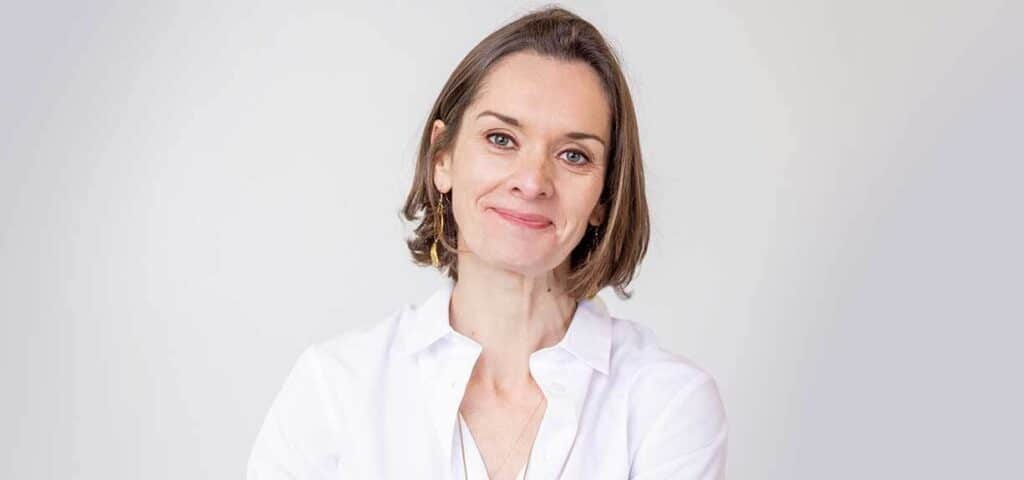Pictured: Claire Carroll, Founder, Claire Carroll Coaching.
Claire Carroll is the founder of Claire Carroll Coaching, a coaching practice specifically tailored for Executives to explore career decisions and make positive changes towards work goals. Carroll has over twenty years’ experience in management including a decade at Google where her roles included Business Mentor in the Google, Adopt a Start Up, programme.
What was your first job?
One college summer, my best friend and I were chambermaids in a Munich hotel, kitted out in shapeless blue and white striped tunics. I’ve never learned so much about human nature. Some guests were incredibly polite and friendly. Others barely acknowledged me as I chirped ‘Guten Morgen’. At the time, I thought I was learning not to judge a book by its cover. Now I know it was actually to respect others, no matter the cover. I think there were lessons in resilience in the face of adversity too…the state of some of the rooms!
What pushed you to pursue a career in this field?
I’m an Executive, Career & Life coach and I help professionals who are at a career crossroads figure out what the next step can be. I’ve a particular interest in working with folks going through transition – an industry move, after maternity/paternity leave, redundancy or a location change. I’ve always had a curiosity about what makes people tick. I studied psychology, then fell into advertising agencies. As I joined the Board of Management and started managing people, I realised I loved mentoring and being influential in others’ progress. I discovered coaching as a sales leader at Google – the skill of listening deeply & asking great questions to draw insights out of people. Coaching makes change much more likely to happen as it brings accountability and challenges thinking constructively.
How do you relax?
I’ve always been partial to taking a last minute sunny day off work and going for a cycle, a hillwalk or to the sea. I love a night out with friends; a cuppa and a Wispa and a good Netflix binge.
What’s the best piece of advice you’ve ever been given?
Done is better than perfect. I used to suffer terribly from procrastination because of perfectionism. Often just doing the thing for an hour and then seeing where you’ve gotten to can release the mental block.
In one sentence, how would you define success?
Digging deep to find strength and courage you never thought yourself capable of and ideally applying those to situations and people that engage and stimulate you the most.
How do you handle adversity?
I ask for help. I have a wonderful family and an incredibly solid circle of friends from university that I know I can go to with any problem, at any time for empathy, advice or just a rant. I have a newer village of neighbours and school gate parents who have been extremely supportive for pragmatic things with my kids. And I’ve a strong network of ex colleagues and managers who are fantastic sounding boards on business ideas. None of the above are shy with constructive feedback!
Career wise, would you do anything differently?
I’d have moved roles a little more often. Working with different people in new teams reinforces what your own strengths are, you learn faster and keep interested.
What would you regard as your greatest achievement to date?
Lots of people I’ve worked with have gone on to have big, enjoyable careers. I’ve been very chuffed when some of them have let me know that a piece of coaching or tough love from me stuck with them and helped them progress. Whether I played a small or large role in how they now operate, it feels great.
What are your aspirations for the future of the business?
This year, I’d like to scale by partnering with organisations to coach their future leaders, middle managers or staff returning from leave. I’d like to take part in some discussion panels and do some more fireside chats. I’d love to then expand by having a team of coaches with different areas of expertise.
How do you motivate yourself and your staff?
I’m currently a sole operator. Structure works for me. It helps me see the progress and keeps work anxiety at bay.
I write annual goals in the areas that matter the most and break those down into monthly targets and actions to ensure they happen (coaching 101!).
I also write down the two or three most productive things I’ve done each day before I shut down the laptop. When I find myself losing concentration, I get away from the desk, stretch or go for a walk around the block to get some fresh perspective.
READ MORE 60 SECONDS
Mike Lillis of Storm Technology

